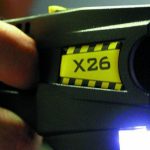What has happened
Dozens of public schools in the Australian Capital Territory (ACT) will close after the detection of asbestos in children’s coloured play sand used in classrooms. Officials say this is a precautionary step to allow for assessment, clean-up and remediation. According to the territory government, 69 schools have been identified as having the contaminated sand, and will be closed for at least part of Monday. The national consumer watchdog, the Australian Competition and Consumer Commission (ACCC), issued a recall for certain coloured sand products after laboratory tests found traces of tremolite and chrysotile asbestos.
What products and how serious is the risk
The sand products under recall include beach-style “magic sand,” sandcastle kits and sensory play sand used in early childhood and primary school settings. Major retailers such as Kmart and Target were among the sellers.
Laboratory tests detected asbestos fibres in some of these sand products. However, authorities emphasise that at this time they have not detected airborne fibres or respirable concentrations in the tested samples — meaning the immediate risk is assessed as low. Despite the low assessed risk, regulators have warned the potential for contamination cannot be ignored — particularly because the sand was in use in classrooms and early childhood settings.
Why the ACT has taken stronger action
The ACT Education Directorate has opted to close the schools because the sand product appears to be “very widely used” across public schools in the territory. As the ACT Work Health & Safety Commissioner pointed out: the legislation requires licensed asbestos contractors, certified assessors and clearance certificates before reopening. In other states and territories, while alerts have been issued, full-school closures have been rare. Officials in those jurisdictions cite the low risk rating and the fact that affected products may be more isolated in their schools.
Impact on schools, families and next steps
Parents and school staff in the ACT have been notified, and schools are sending communications about closures and next steps. Some of the classrooms or areas will need to be isolated, cleaned and certified safe before reopening. Education departments nationwide are auditing whether their schools hold the specific sand products named in the recall — and asking them to secure or remove them immediately. For households, regulators advise that if families have purchased the recalled sand, they should follow disposal instructions: do not handle it like normal sand, wear protective gloves and mask, double-bag it and store safely until authorised disposal instructions are available.
What’s next
Testing and remediation will take time: clearance certificates must be issued before normal school operation can resume in the affected schools. While the ACT has closed nearly 70 schools for this process, the exact number of days each will remain closed varies by how extensive the remediation work is.
Investigations will continue into how the contaminated sand was allowed onto the market and into schools, and whether there are further products or batches affected. Families are being reassured that, on current evidence, the health risk is low — but that precautionary measures are warranted given the nature of asbestos and the long-term health implications of exposure.
Correspondent specialising in environment, Indigenous affairs and Western Australia news. 9 years in journalism










